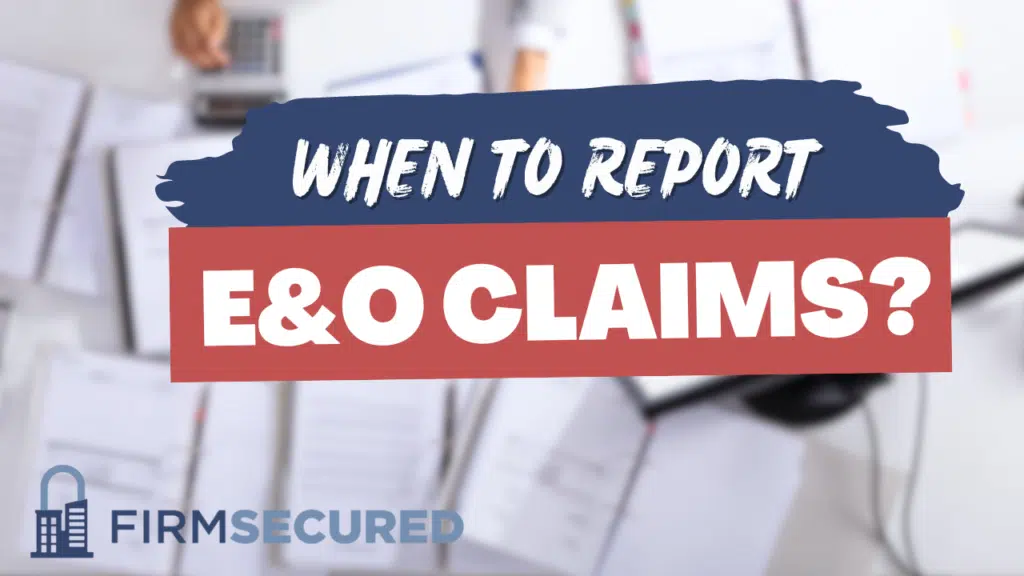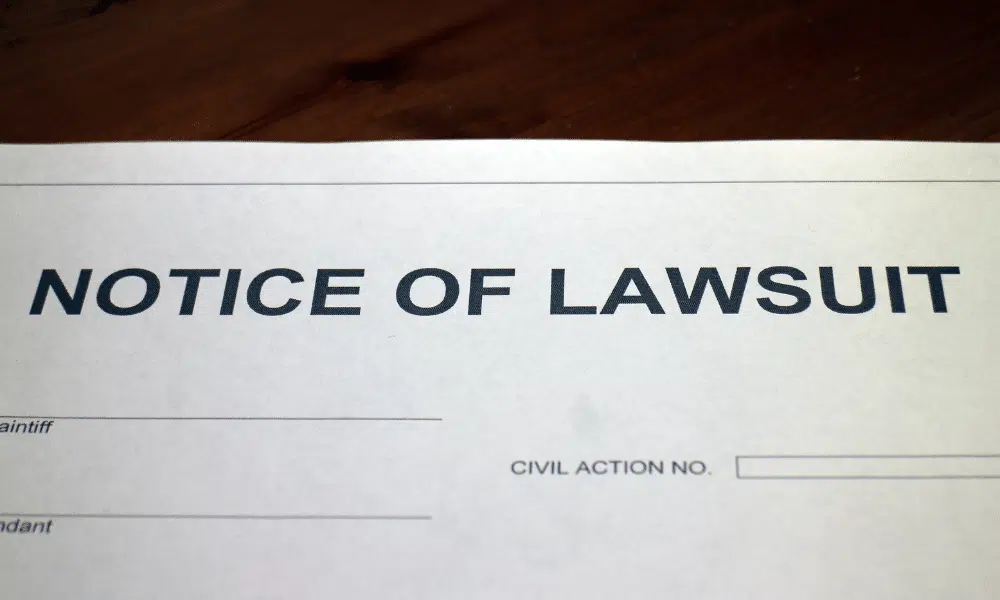Reporting Real Estate E&O Claims
As a real estate agent, you, your principal broker, or firm have probably paid good money to ensure that you are adequately covered by errors & omissions (E&O) insurance.
But simply having a policy is not enough. You must also be aware of the reporting requirements for both claims and potential E&O claims.
Don't Sabotage Your Errors & Omissions Coverage
By far, the most common reason for E&O insurance companies denying real estate claims is prior knowledge. This means that if you had knowledge of a claim or potential claim and did not report it to the carrier within the specified time as explained in your E and O policy, your claim may be denied.
For example, we’ve seen situations where agents think they can smooth over a situation that is a potential claim, but not yet a lawsuit. If it develops (or erupts) into a lawsuit several months or even years down the road, reporting it at that point may be too late.
We’ve seen situations where an agent tries to settle an issue out of their commission, and then come back to the insurance company to report the claim for reimbursement. Most insurance companies would reject that claim since they might have handled it differently..
General Guidelines for Reporting Claims
It’s essential to refer to your actual policy for complete terms, conditions, and guidelines regarding the definition and reporting requirements for claims and potential claims. If you are a managing or principal broker, make sure your agents are reporting these situations to you.
Here are some general guidelines of situations and claims you should report to your real estate E&O company:
Lawsuits: You should always report any actual lawsuits to your E&O company ASAP. Even if you think the lawsuit is frivolous, you should still report it.
Threats of a Potential Claim: If you receive any threats that suggest someone may file a claim against you, you must report it to your E&O company.
Demands: If someone makes a demand for money or other compensation, you must report it to your E&O company. Even if you think the demand is unreasonable, you should still report it.
Commission Complaints & Disciplinary Proceedings: If you are involved in any disciplinary proceedings, commission complaints, or complaints brought to any other regulatory body, you must report it to your E&O company.
Knowledge of Anything That May Reasonably Be Expected to Give Rise to a Claim: If you become aware of something that may reasonably be expected to give rise to a claim, you must report it to your E&O company.
It’s always better to call your insurance agent when you are not sure if you should report a situation, than to find out later your claim was denied because of hesitation.
For our clients at FirmSecured, you should gather relevant documents, as well as the transaction file related to the claim. If you are an agent, talk to your principal broker and have them call us.
Reporting Claims After Changing E&O
When switching E&O insurance companies, most carriers will include a knowledge date, or prior or pending litigation date, on the new quote/policy. Usually this would be the effective date of the new policy.
This means if you have knowledge of a claim or potential claim before the effective date, you should report it to the prior insurance company (within their specified reporting period). Your new insurance company can rightfully deny that claim if you try to report it to the new insurance company.
The knowledge date is not the same thing as your retroactive date. So if a claim comes up from a house you sold years ago that you didn’t have knowledge of before the knowledge date, it is likely a valid claim for your new company. Of course, that is, if the transaction was after the retroactive date).
If you want to learn more about real estate professional liability, check out our Ultimate Guide to Real Estate Errors & Omissions Insurance
If you are not in real estate or property management but want to know more about E&O for your industry, check out our professional liability programs for other industries at Veritas Risk Management.
To get a real estate E&O proposal for your firm, simply complete the short form below. Our team will be in touch with you shortly.





